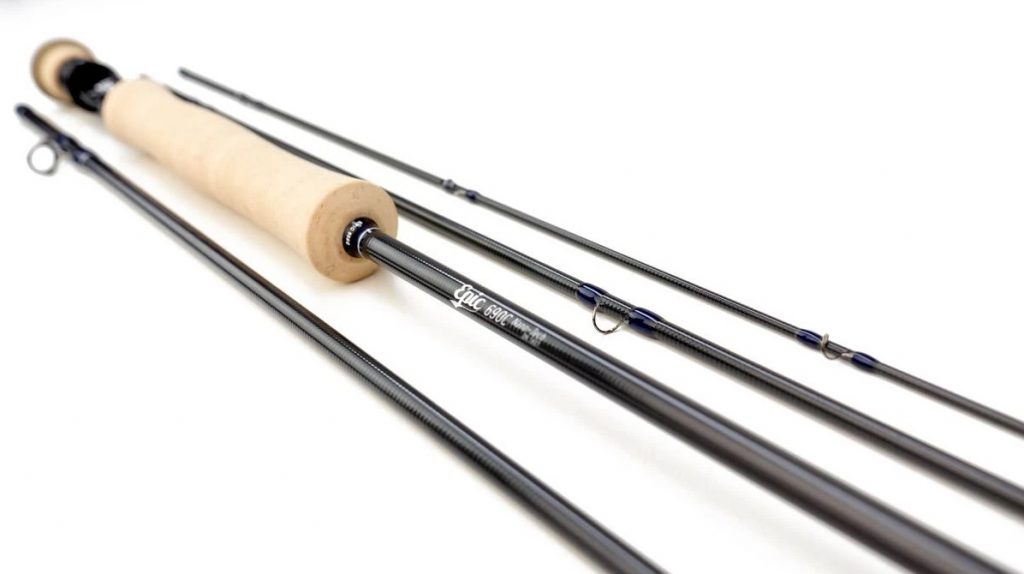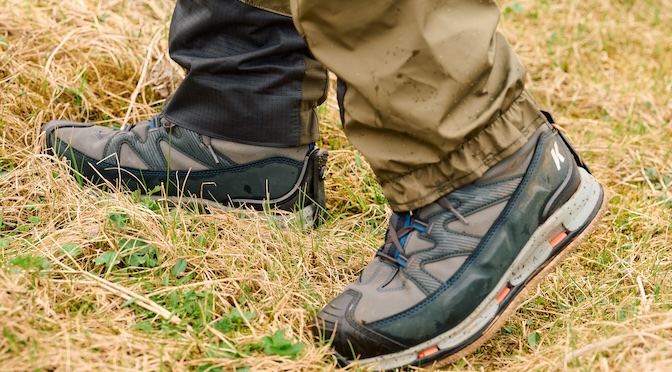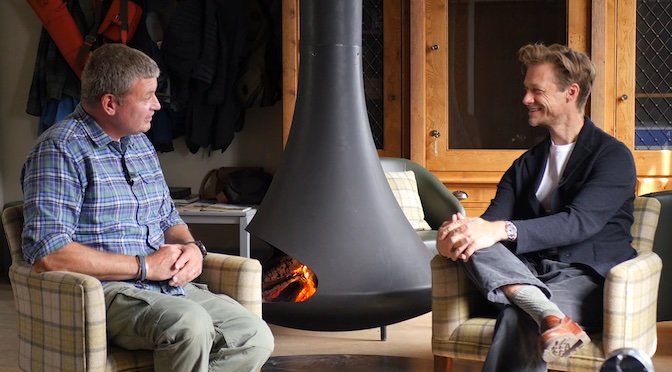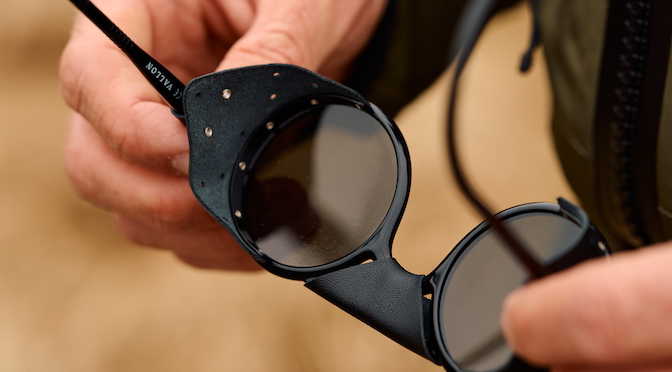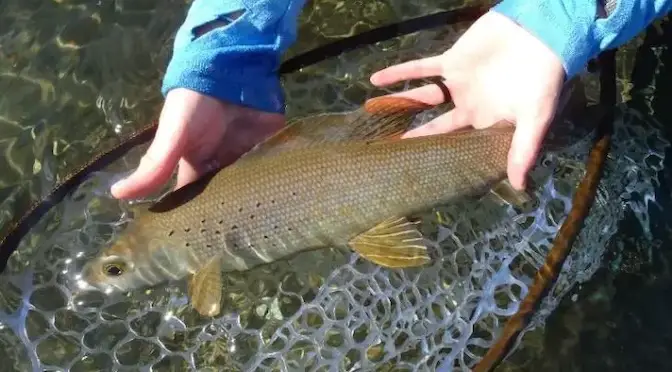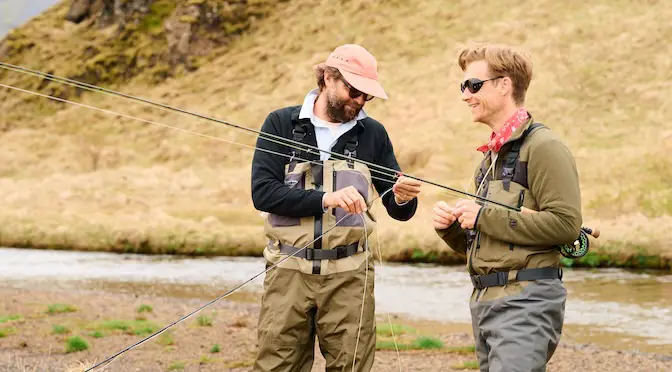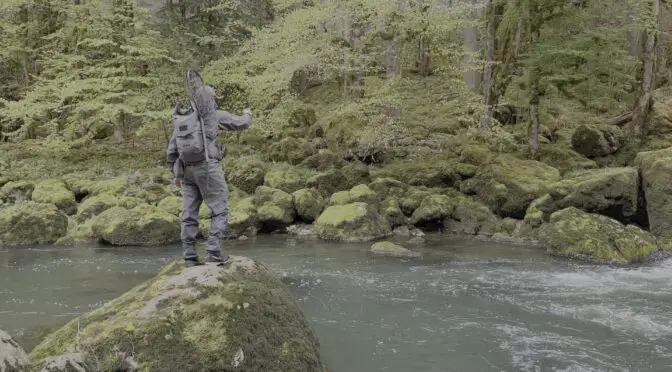Last updated on January 11th, 2024.
- Fly fishing nymphs: a neon underwater shocker - May 7, 2019
- Sand Eel Fly: A Simple and Effective Pattern - September 1, 2018
- Pike Flies: Effective Patterns for Predators - May 24, 2018
Besides classic fly fishing in flowing water, pursuing predators in still water becomes ever more popular with perch flies like this.
In recent years I have developed techniques in tying effective patterns for pike, perch, pike perch, sea trout and co. In the first part of the predator series I want to introduce one of my favorite patterns to do some fly fishing for perch.
Fishing the Perch Streamer
The small streamers are ideally fished with a #6 or #7 fly rod. Due to the sparse material and the slim form, the streamer is even fishable on a #5 rod. Although the streamer is aimed at fly fishing for perch it just as well attracts asp and pike perch. It can also be used to fish for trout in flowing water. In this case it’s useful to tie the streamer upside down, with extra weight. There is no limit in experimenting with colors, however, top decors have proven to be perch and white fish imitations and a shock variant.
To change the action of the streamer, you can add some extra weight in the head area, then the streamer tilts more over the head. I always head to the water with a wide selection of streamers with different color options and weighted and unweighted versions. To effectively fish the streamer, I usually use an intermediate or sinking line. In very shallow areas, of course, a floating line works as well.
Due to their structure and their slim profile, the small streamers can be cast easily and stripped in at different speeds. It’s best to attach the leader with a loop knot to the eye of the hook so that the streamer has maximum freedom of movement.
Fly Fishing for Perch
This is how my perch streamer is tied step by step:

Place the thread on the shank and tie in the stiffest possible synthetic fiber material. This helps to stabilize and prevents tailing of the long fibers. The thread can be fixed now and then with super glue. That never hurts.

Add multiple layers of craft fur and polar hair. You already have to make your choice regarding colors at this point. Form a uniform body with the thread and the material and then integrate the body floss. This saves material and the streamer gets a translucent silhouette in the water.
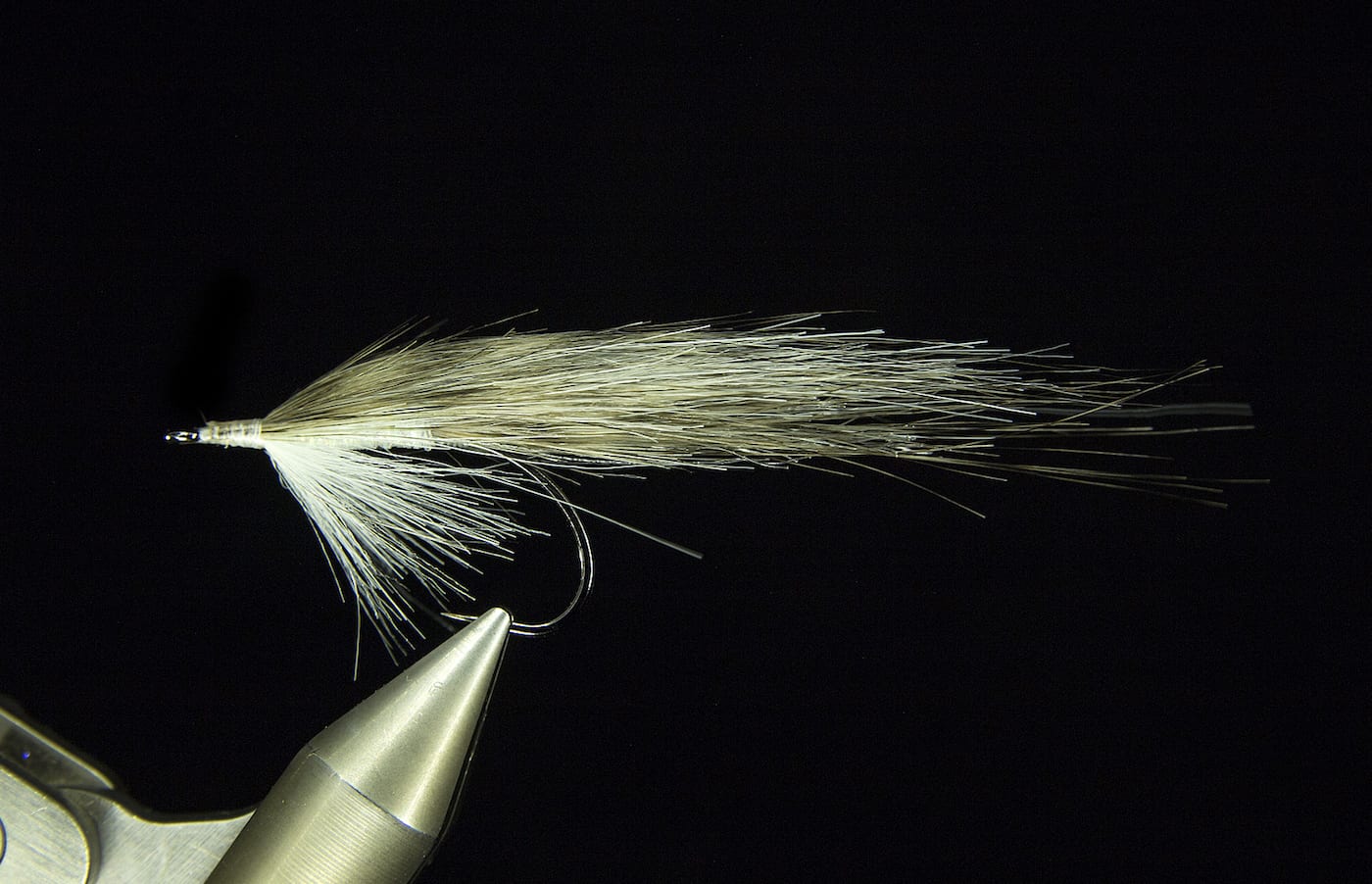
In the next step more craft fur will be integrated on top of and below the shank. On top longer, below the shank short and only to the bend of the hook. If you want, add some glittering material to the fur.
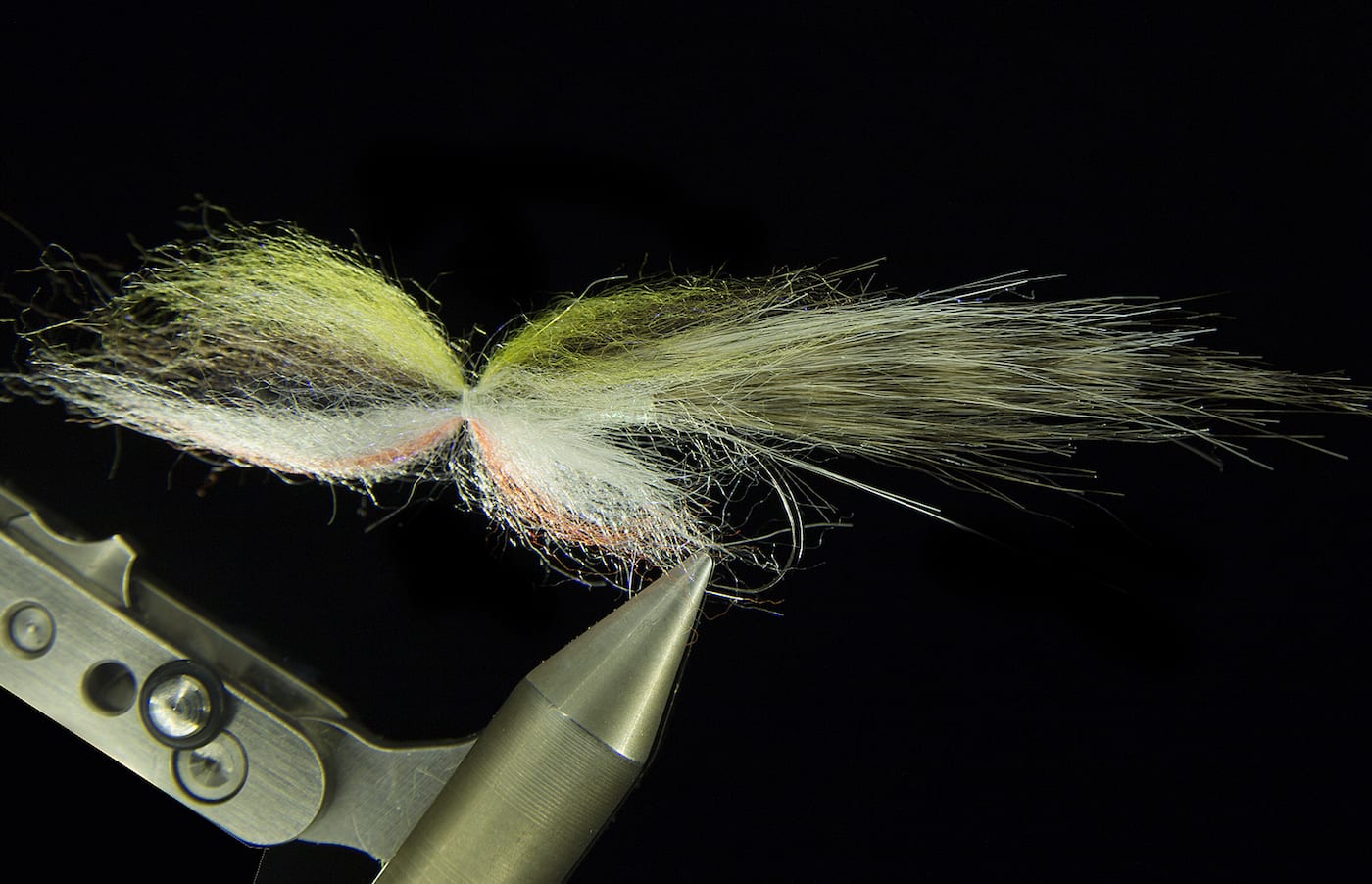
Tie in the laser dub above and below but not on the sides so that the streamer keeps a narrow profile. Pay attention to the order of the different colors. The color that should be at the top in the end is tied in first. Through different color combinations you can achieve impressive results. Tighten the thread and fix it.

When the material is tied in in the correct order, smooth it out with a comb and your fingers. Fix the material with the thread, behind the eye of the hook. If lead is to be tied to the head, it is important to use as little thread as possible so that it does not get too bulky.
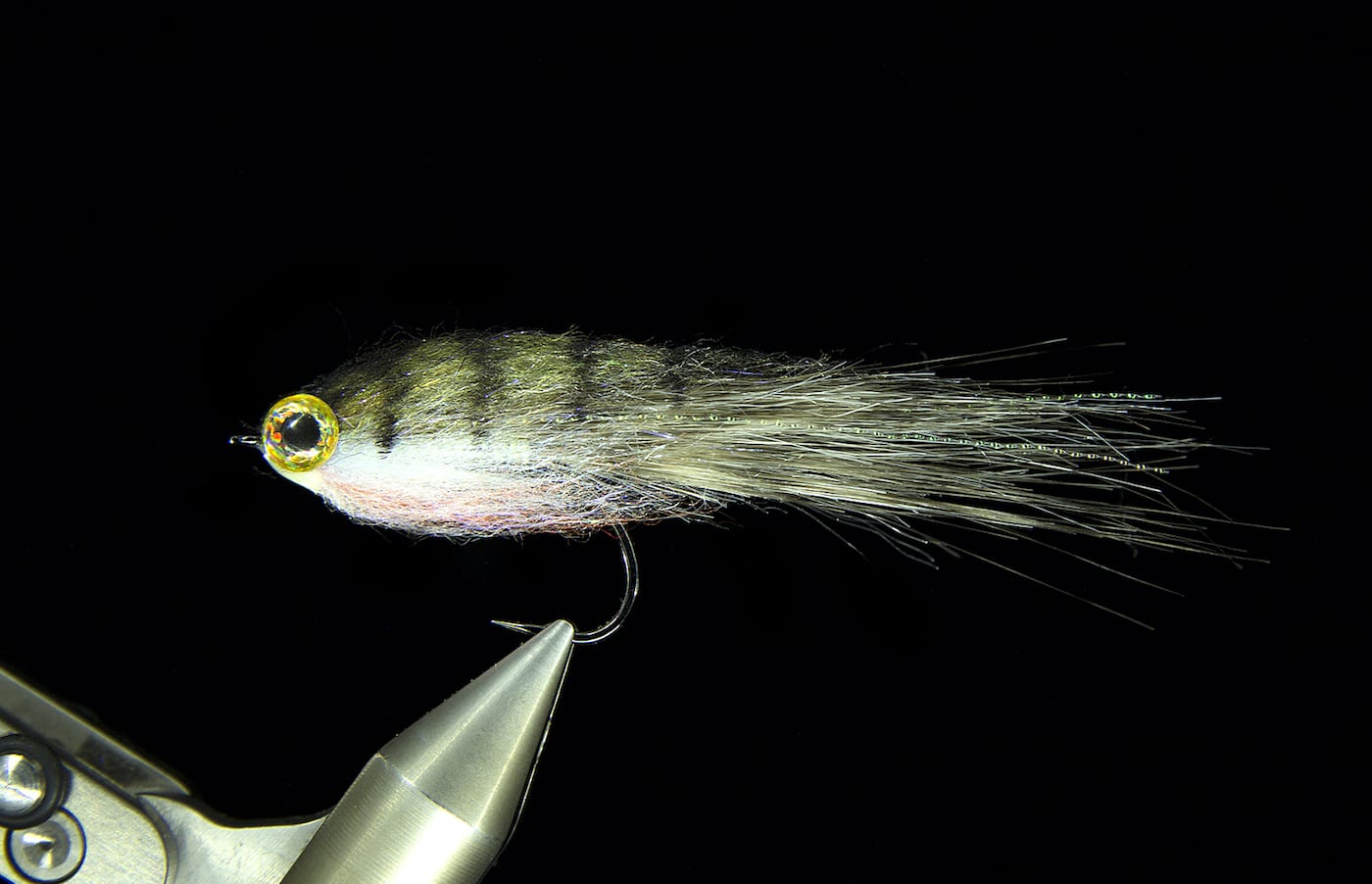
Finally, place the head knot, fix the eyes with superglue and form a head using UV resin. I add fly tying powder to the glue to color it. As a last step, the entire head is covered with nail polish. That makes the head more durable.
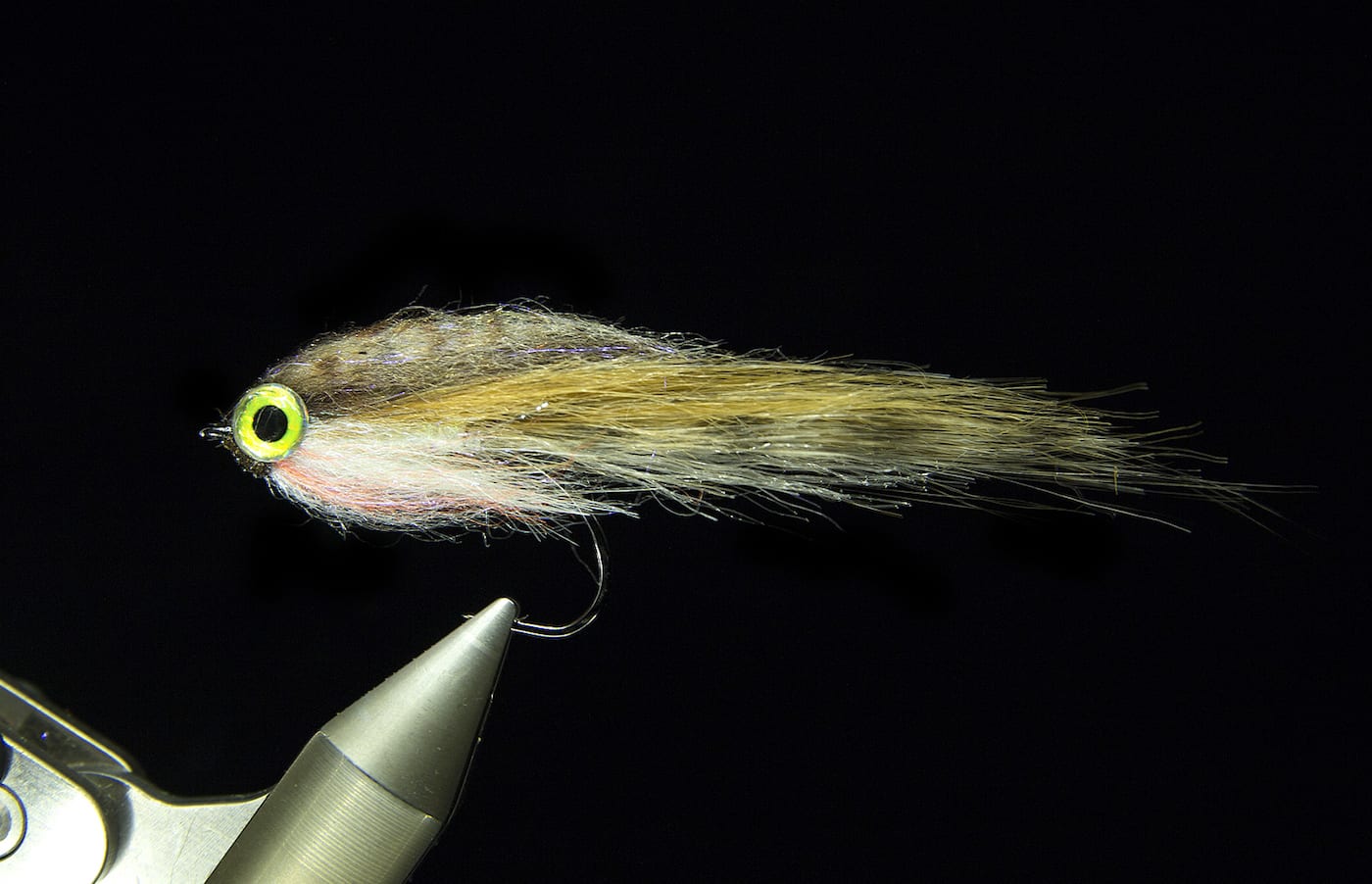
Color variations:



List of materials for one of the best perch flies:
Hook: Gamakatsu F314, size 2 – size 4 works as well.
Tying thread: Dyneema 12/0
Slinky fiber or similar material
Polar hair
Craft fur
Body material such as floss or mylar piping
Senyo’s Laser Dub
UV Cure Resin + Loon Tying Powder
3D eyes
colored pencils
Check out Rainer’s work here:
“Fly fishing Nymphs: a Neon Underwater Shocker”
“A Simple and Effective Sandeel Fly Pattern”
“Pursuing Predators on a Classic Pike Fly”
Disclaimer: If you click on an affiliate link on this page and end up making a purchase we earn a small commission at no extra cost for you.

